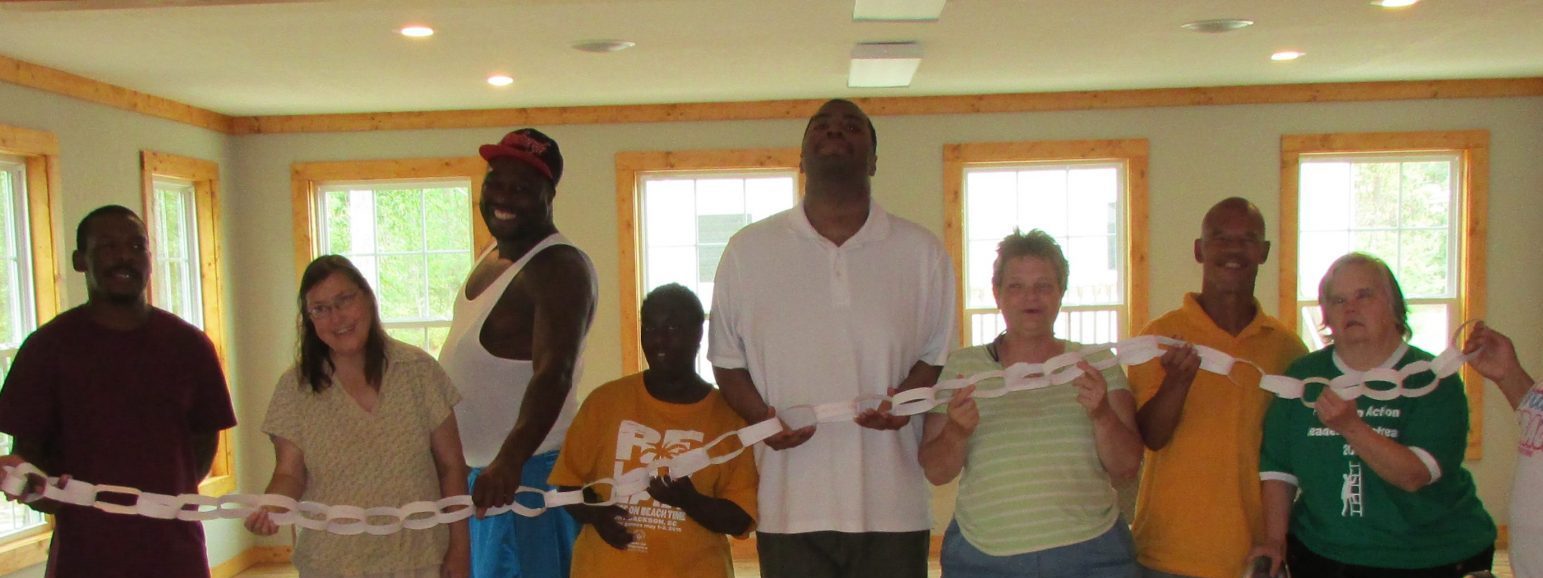Services that we provide
Day Services Locations

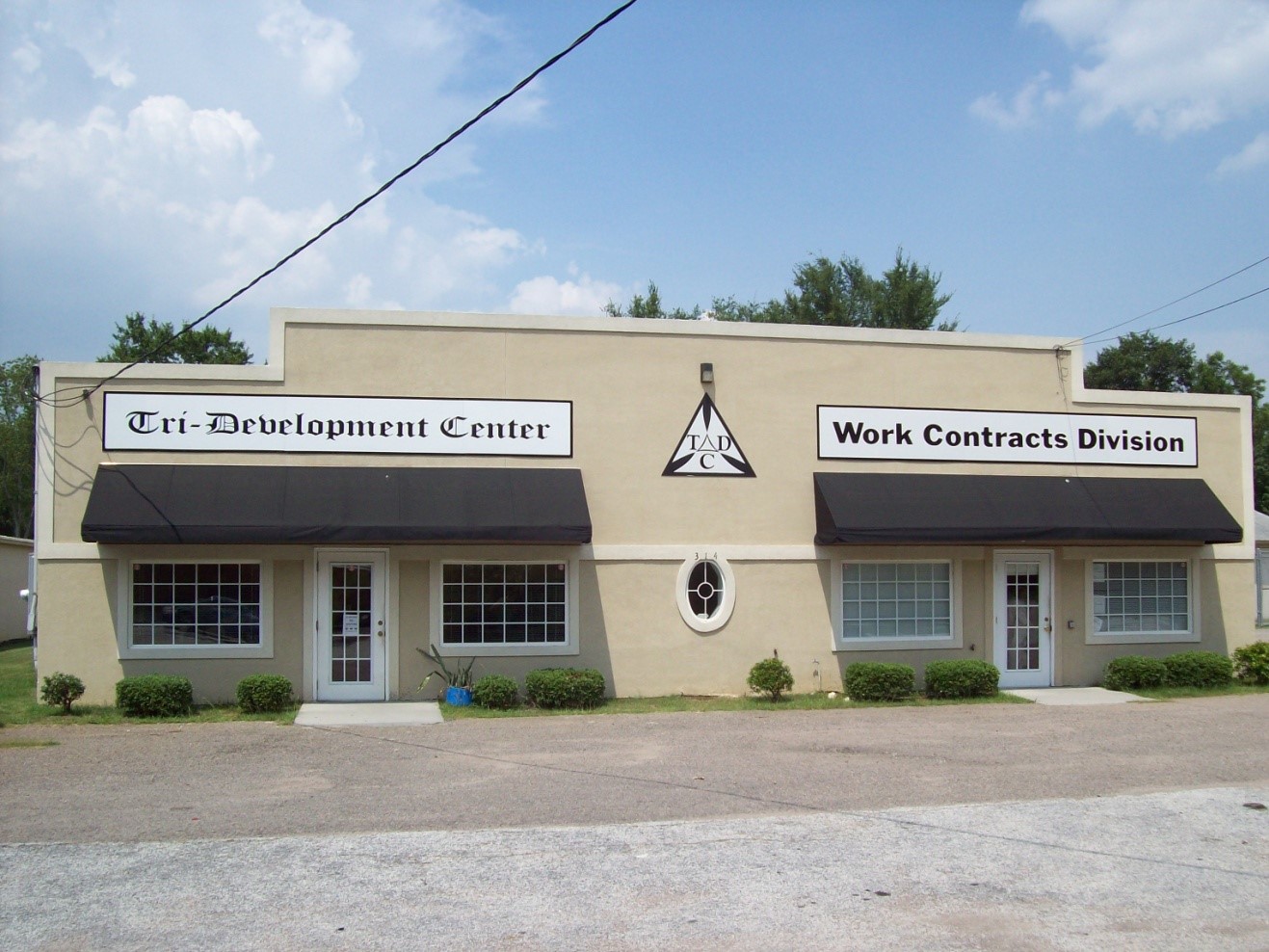
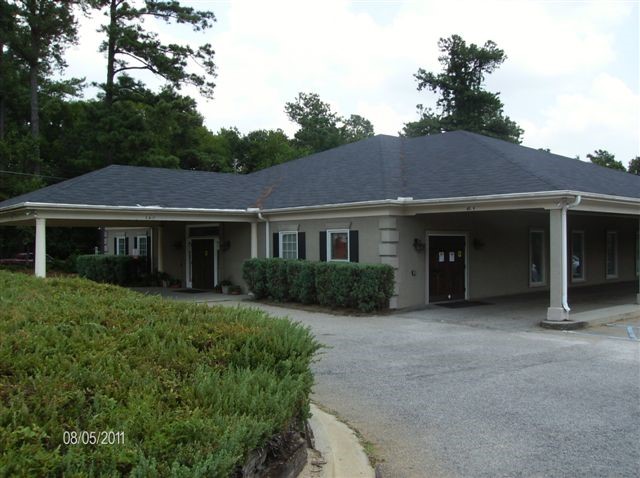

Family Involvement
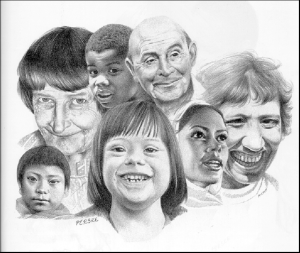 The focus of services is to assist individuals in choosing their own goals and supports. We recognize that family involvement is an important component and strongly encourage participation by parents, guardians, and other important persons in the individual’s life. There are several ways family/friends may participate.
The focus of services is to assist individuals in choosing their own goals and supports. We recognize that family involvement is an important component and strongly encourage participation by parents, guardians, and other important persons in the individual’s life. There are several ways family/friends may participate.
At least once a year a planning meeting is held to discuss progress and identify desired goals for the coming year. Individuals may invite family and friends to participate in this meeting.
Throughout the year other team meetings may be held to address additional needs or changes that may arise. Meetings may be requested by Tri-Development Center staff, the program participant’s case manager, and/or the individual/family. With the individual’s consent, family/friends may participate in these meetings.
We will also communicate with individuals, families, and advocates through a variety of ways including phone calls, mail, email, notes sent home with individuals or drivers, conversations with staff, and communication through the service coordinator. For this reason it is very important that you keep your address and phone number current. You may also use these methods to communicate with us.
There is a family group called Family/Friends Action Group that meets on the 4th Wednesday of every other month at 12:30 p.m. It is an open forum where information about the agency, services, etc. is presented and opportunities for questions are provided. This is a good opportunity for families to become aware of current trends, issues, or other topics related to disabilities. You will be notified by memo through the mail or Training and Support Services when meetings are scheduled.
Support Services
We believe that each individual is capable of choosing and directing the services and supports he or she needs to be successful. An array of services is available within which an individual’s specific interests and needs can be supported. We are committed to working with each individual to identify his or her specific desires/needs and to develop services and supports that match his/her needs. Individuals interested in services through Tri-Development’s Training and Support Services may choose from several options. All services are provided at no cost to eligible individuals for whom day support services are funded by the SC Department of Disabilities and Special Needs.
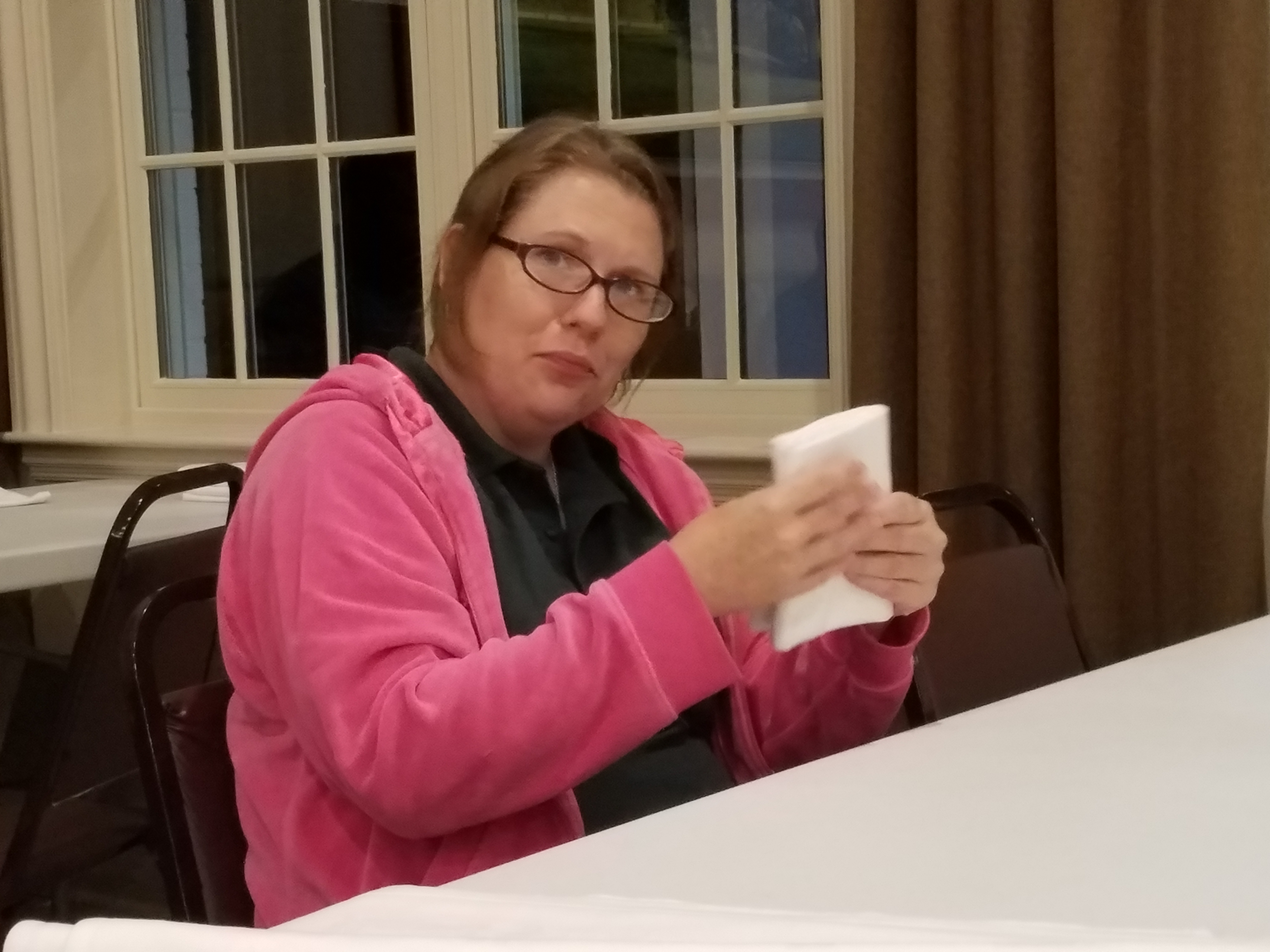
Employment Services / Individual (often referred to as job coaching) are available for persons who desire and need assistance to obtain and maintain employment. Services include interests/skills assessments, training in interpersonal skills, time management, and use of public transportation, problem solving, on-the-job training, benefits planning, and career planning.
Community Services assist participants in developing awareness of and/or participation in their communities through exposure to and experience in community settings. Activities are aimed at teaching concepts such as self-determination, self-advocacy, socialization, and the development of social roles.
Community services may be provided on an individual basis in natural community settings or in facility-based settings for those who prefer regularly scheduled supervised activities outside their own home.
Day Activity Services are supports provided in facility based settings to enable participants to achieve, maintain, improve, or decelerate the loss of personal care, social, or adaptive skills. Activities may include recreation/leisure activities such as crafts and games, communication and social skills activities, and mobility training. Services also include opportunities to learn about community services, to be introduced to careers and work concepts, and to develop self-determination and self-advocacy skills.
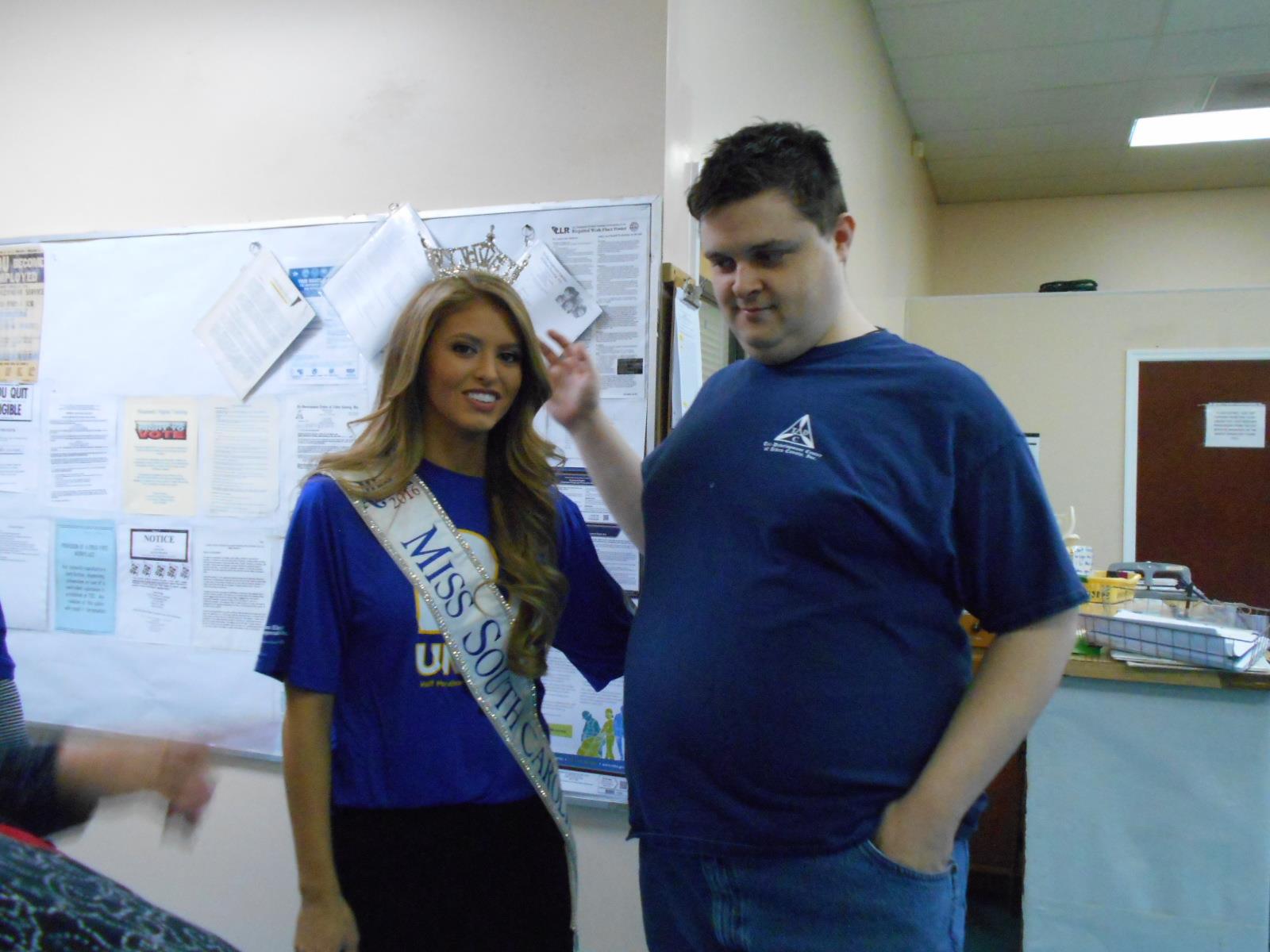
Support Center Services provide non-medical care, supervision and assistance in licensed facilities for people who because of their disabilities are unable to care for and supervise themselves. Non-habilitative activities and opportunities for socialization are provided but not as therapeutic goals.
Career Preparation is aimed at preparing participants for work through exposure to and experience with careers and through teaching concepts such as compliance, attendance, task completion, problem solving, safety, self-determination, and self-advocacy. Career preparation services are time limited with the expectation that participants will become employed in either group or individual positions.
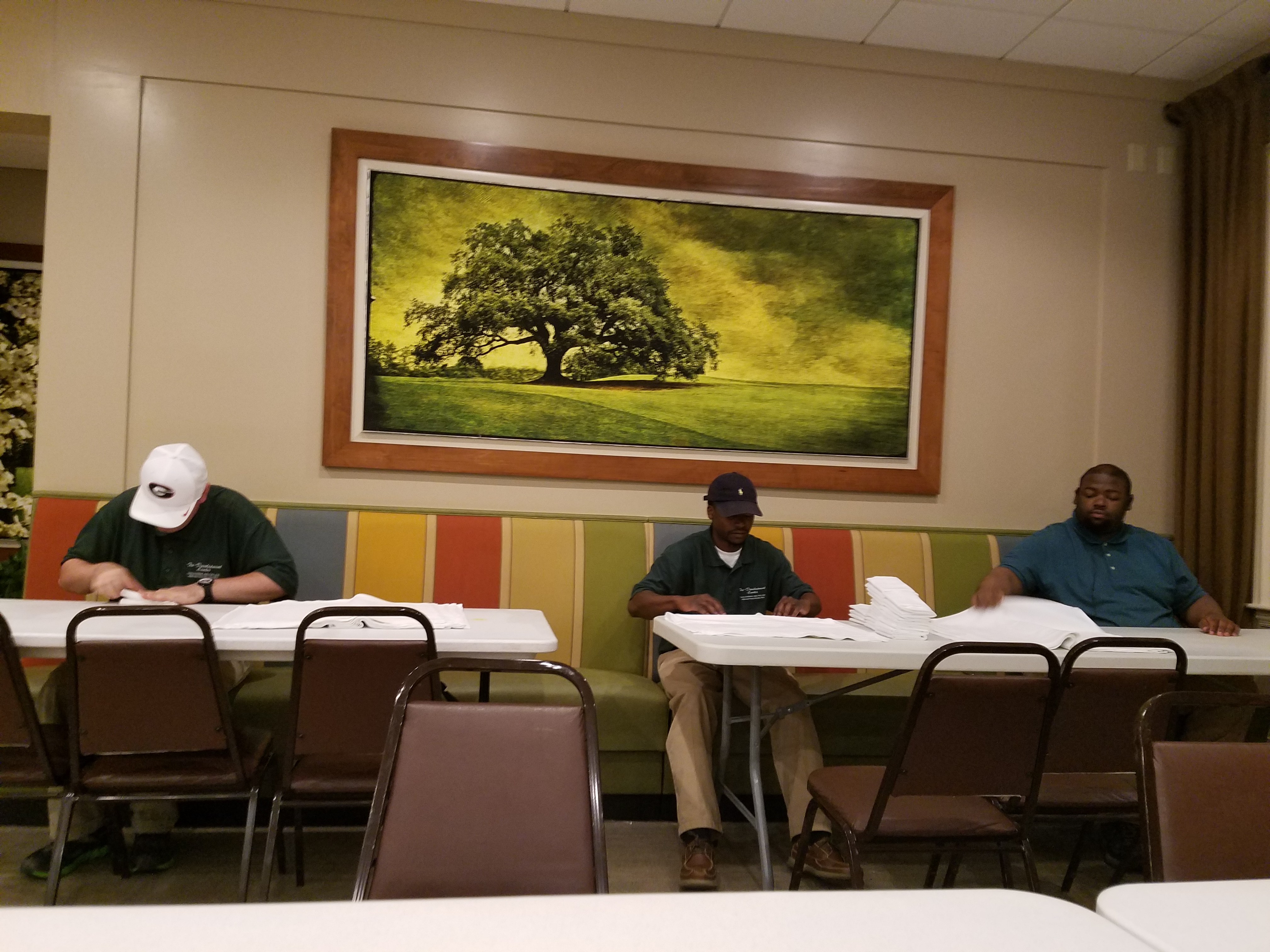
Employment Services / Group provides intensive, ongoing supports that enable participants for whom competitive employment at or above minimum wage is unlikely without supports, and who, because of their disabilities, need supports to perform in a regular work setting. Employment services include activities such as supervision and training needed to sustain paid work. Employment services may be provided in group settings, such as mobile work crews or enclaves usually in community settings where people without disabilities are employed. Employment services is an avenue whereby people with disabilities can engage in meaningful work, sustain a wage and contribute to society regardless of their support needs.
Compensation for Work Performed
Workers who participate in employment activities as part of their support services will receive compensation for their work. Payments are scheduled bi-weekly, with all workers receiving their wages every other Friday based on the work performed.
Hourly wages for workers are competitive. While Tri-Development Center possesses a special minimum wage certificate under the Fair Labor Standards Act, 29 CFR, Part 525 – Employment of Workers with Disabilities Under Special Certificates, which allows for a special minimum wage based on individual productivity compared to non-disabled workers in similar roles, we have phased out this practice entirely. As a result, all individuals are now paid at least minimum wage.
Worker hours are calculated based on their productivity, ensuring fair compensation. Additionally, all workers receive scheduled breaks throughout their workday to support their well-being and productivity.
Transportation
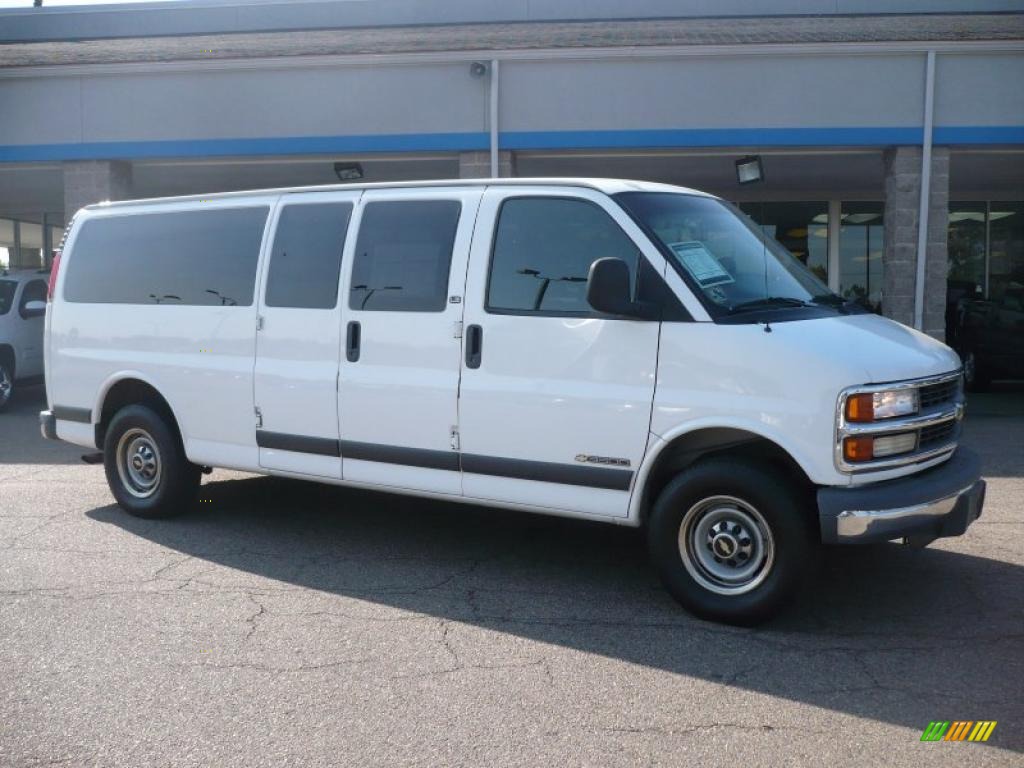
Transportation is provided to and from the adult day facilities in Aiken/North Augusta/TDC West and to/from work sites for individuals receiving center-based day supports.
Van routes usually begin at 7:30 a.m., Monday through Friday, with arrival at the center within 1-1 1/2 hours. Individuals are generally returned to their home between 2:45 and 4:00 p.m.
Representative Payee Program
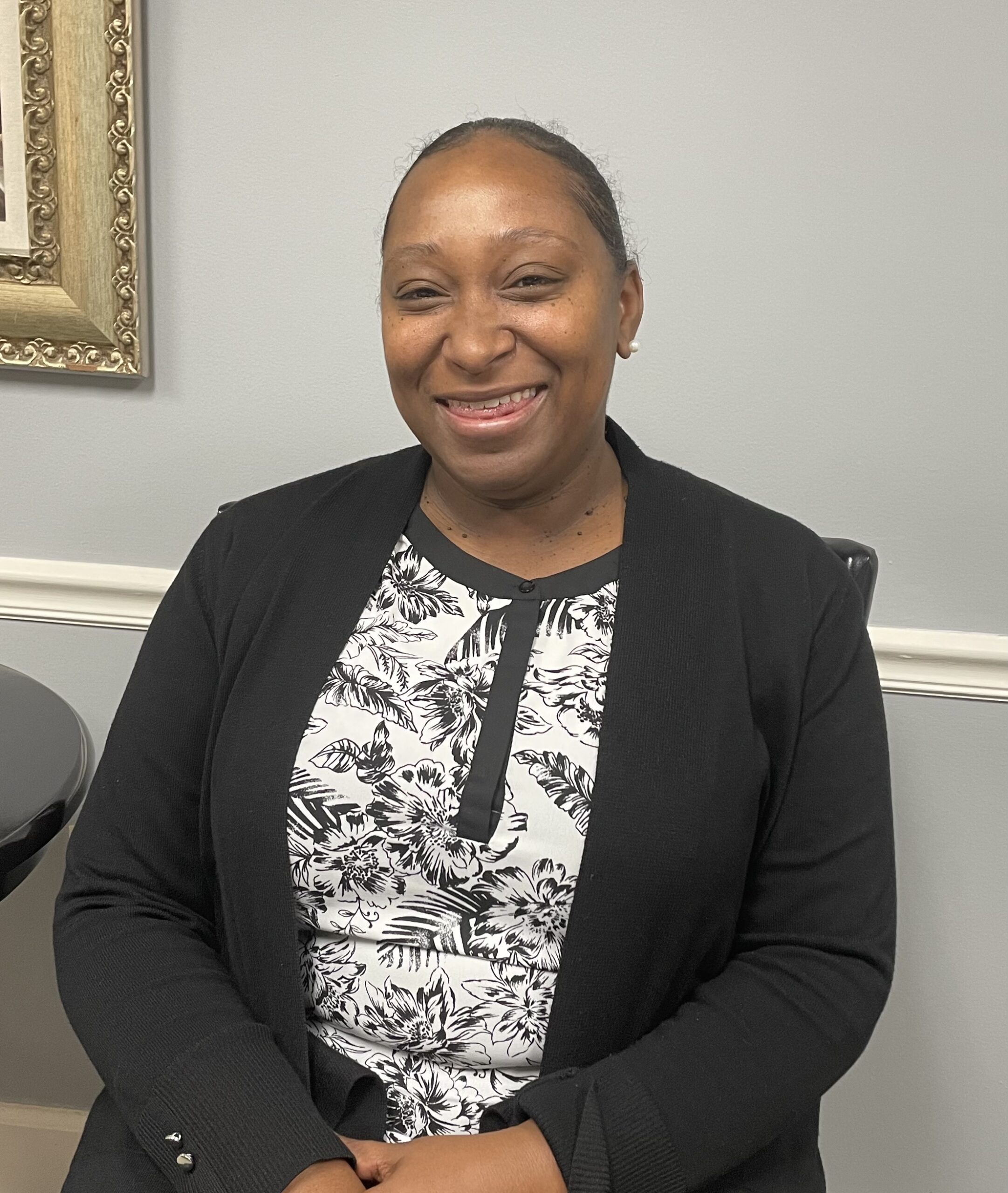
Kendra Wade
Rep Payee Services Coordinator
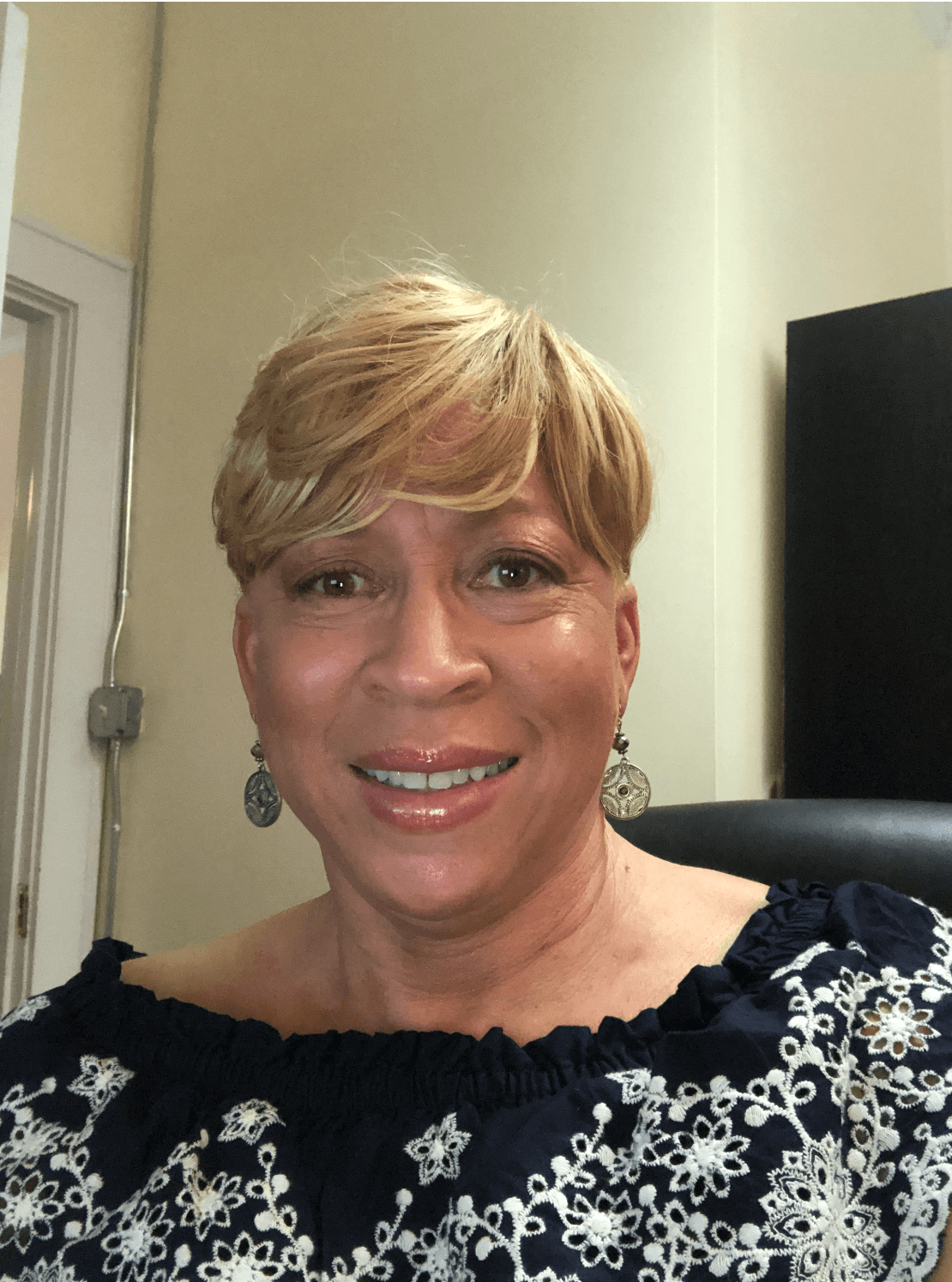
Teresa McKie
Administrative Assistant/Rep Payee.
Residential
One of our goals at Tri-Development Center is to assist in the provision of supports necessary to prevent the need for costlier residential services outside of the home of an individual’s natural family. There are, however, inevitably, instances in which the need for residential supports is necessary. In such cases, every effort is made to find the individual a place to call home where he will be comfortable, safe, and happy. The supports offered through our Residential Services Program are provided by highly skilled employees dedicated to assisting individuals in gaining the skills necessary to become as independent as possible. People with disabilities who receive residential supports want and need to be included in the activities of their communities. They want to have their own circles of support but, unfortunately and too frequently, many of the people we serve have little or no contact with members of their families and few individuals without disabilities other than our staff members. This has a negative impact on the quality of their lives and our goal is to assist them in developing meaningful relationships to enhance their lives. In today’s economic climate, it is unrealistic for the community to think that one agency can adequately meet all of the social and transportation needs of the people we serve. Concerned citizens need to be open to developing friendships with individuals living in congregate settings. Through participating in one another’s lives, together those with and without disabilities can reap the benefits of rich the relationships which develop.
Residential Service Models
Intermediate Care Facilities/for Individuals with Intellectual Disabilities/Developmental Disabilities (ICFs/IDD)
These four group residences each serve as the home to eight individuals. They are all located within the City of Aiken. Staff members are on duty 24 hours per day to provide needed supports and training. Individualized programs are developed to help each person develop skills and, if possible, move to a less restrictive environment. Staffing does include nursing personnel. Assistance in bathing, toileting, feeding, communicating, and other accomplishing other basic tasks is available. Most individuals attend a day services program also operated by Tri-Development Center. Family and community involvement is encouraged. These homes are licensed and certified by the S.C. Department and Health and Environmental Control.




Community Residential Care Facilities
Two Community Residential Care Facilities are operated by Tri-Development Center. Both are located in the City of Aiken and combined serve as the homes of 16 individuals. Those living in a Community Residential Care Facility cannot require nursing, unless it is on a very short time period. They do, however, have many similar needs as those living in the ICFs/IDD. Days services/vocational programs are offered through other Tri-Development Center locations. These homes are licensed and reviewed annually by the S.C. Department of Health and Environmental Control. The S.C. Department of Disabilities and Special Needs contracts with an independent agency to provide quality assurance and enhancement activities.
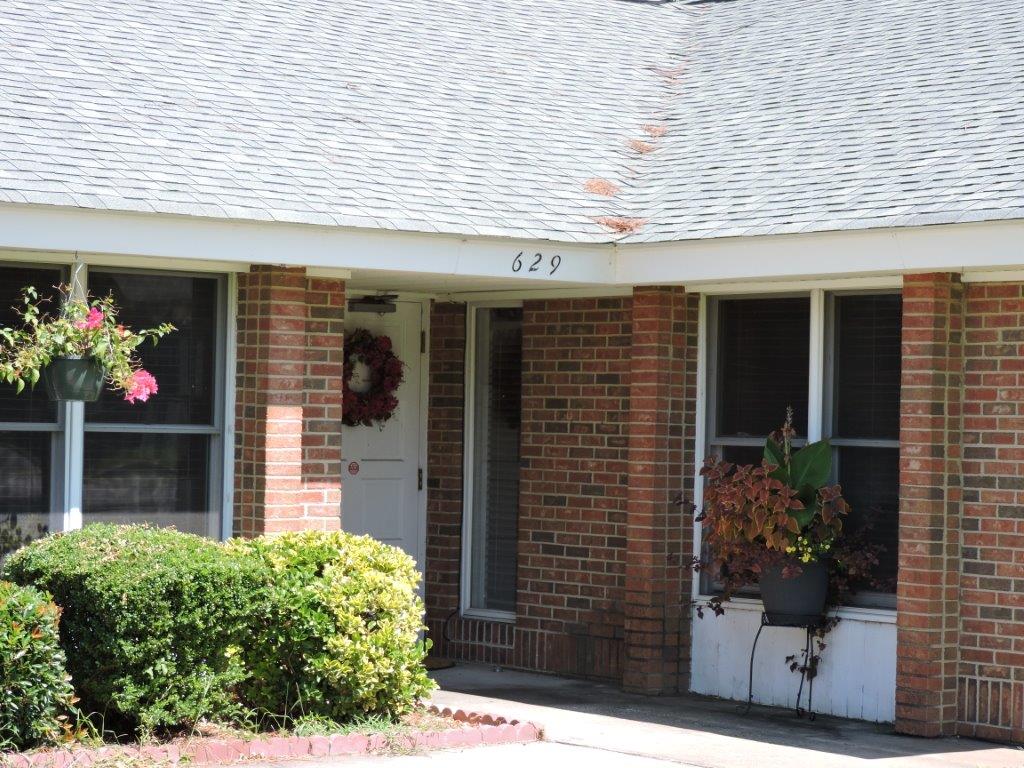

Community Training Home II Residences
Each of the 26 Community Training Home II residences in Aiken County provides a home for 3 or four individuals. It gives these individuals a home-like environment and provides training in areas each person needs in order to become more independent. The program strives to integrate these individuals into community activities which are the norm for any citizen. Staffing patterns vary from shift staff to live-in caregivers with weekend substitutes. The homes are located in Aiken, North Augusta, Jackson, New Ellenton, and Midland Valley areas. The individuals usually receive one or two of the agency’s day services during the day. Licensing inspections are conducted by the S.C. Department of Health and Environmental Control and S.C. Department of Disabilities and Special Needs. The S.C. Department of Disabilities and Special Needs contracts with an independent agency to provide quality assurance and enhancement activities.
























Various Community Based Homes
Enhanced Community Training Home I (ECTH I)
The Enhanced Community Training Home I model is similar to an enhanced foster care program for adults. In Aiken County, Tri-Development Center oversees the provision of caregiver training and home management. Nine such homes presently exist in Aiken County and serve a total of 8 individuals. Under this model, contracted caregivers live in a private home with one or two individuals with disabilities. Generally, these homes are owned by the caregivers. These homes receive licensing inspections annually which are conducted by the S.C. Department of Health and Environmental Control.
Supervised Living Program II (SLP II)

The 20 single bedroom apartments making up Aiken Apartments are the homes for 20 individuals served by Tri-Development Center. Staff members are on site or very close by throughout the day to help with training in areas such as cooking, doing laundry, taking medications, scheduling appointments, maintaining sanitary living environments, and interpreting medical information, assisting with development of interpersonal skills, etc. Many of these individuals work at various jobs throughout the community. A staff member is also on site overnight to assist with any issues that may need to be addressed. The individuals with disabilities renting these apartments pay rent based on their incomes with the remainder being subsidized by the U.S. Department of Housing and Urban Development. Licensing inspections are conducted by the S.C. Department of Health and Environmental Control.
Supervised Living Program I (SLP I)
Some individuals with lifelong disabilities can, of course, live successfully in their own apartments located throughout the community and only need limited supervision and supports. Staff members are available to currently assist a number of individuals as needed in areas such as money management, transportation, shopping, understanding medical information, reading mail, etc. Emergency response is also available.
